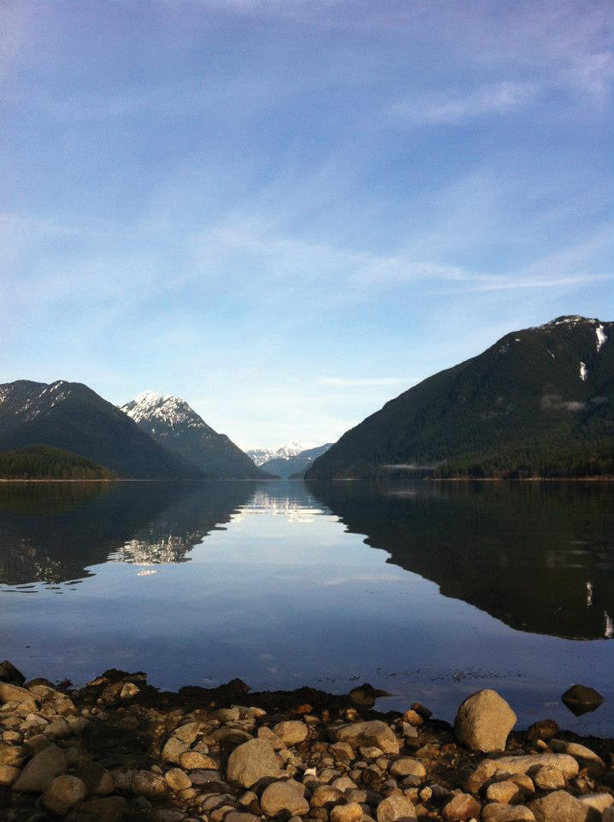Print Edition: January 22, 2014

Last winter, I went hiking with some friends in the mountains north of Maple Ridge. To be honest, I didn’t want to go. They’re sporty, outdoorsy folk — the kind of people who go cycling in logo-plastered Spandex and not only own real snowshoes, but actually use them — while I think a cold winter day means cozy slippers and a book, not blisters and hypothermia. But somehow they pried me off the sofa and into the truck, and away we went.
I began to feel better about going as soon as we left the city and reached the trailhead. It was a perfect December day, bright and crisp. The trail was dusted with fresh snow, but the brisk pace kept us warm. The cold air was so clear that we could count every individual tree on the mountains from miles away. After a couple of kilometres, we rounded a corner and found ourselves looking out on the Golden Ears completely cloaked in white, side-lit by the low winter sun.
We stopped and sat on a snow-covered log, drinking hot tea from a Thermos and passing around a bag of homemade cookies that someone had brought. My fingers were freezing and my nose was running, but it kept crossing my mind how glad I was that I hadn’t stayed home doing laundry and watching Netflix. I would have wasted my day and not even known it.
We weren’t the only ones enjoying a winter hike. A Korean family with two small girls zipped into Hello Kitty snowsuits caught up to us after a few minutes. They had just enough English to ask us to take their photo — we deduced from their gesturing — with the Golden Ears in the background. How flattering is it that we live a place so extraordinary that people come from the other side of the planet to see it, even in the dead of winter?
But it seems like we take our province’s beauty for granted. Our long, wet winters keep us inside for six months of the year. And while everyone knows the physical drawbacks of an indoor lifestyle — vitamin D deficiency and pudginess, to name a couple — we don’t often think about the psychological effects it has on us.
Living with walls around us splits us from the natural world both physically and mentally. Nature deficit disorder, the development of behavioural problems in people who grow up without being exposed to natural environments and wild places, has been on the radar of psychologists for over a decade. Just this month, the American Chemical Society published the results of a scientific study that spent several years tracking the mental health of people who relocated from grey urban environments to areas with more trees and green space. No one’s particularly surprised by their findings: people surrounded by nature became significantly happier and more emotionally stable than those surrounded by concrete. We like green stuff. We need it in our lives.
That’s why we’re so lucky to live here. Even in the heart of Metro Vancouver, we’re never more than half an hour’s drive away from breathtaking walking trails, mountains, and creeks. That Korean family knew that they only had so long to visit B.C., and they were taking advantage of every minute of their time here, snow or no snow. It’s a good reminder for us to enjoy what we’ve got.
It’s now January and we have at least a few more weeks of winter before the weather starts to warm up — but I’m turning off Netflix and grabbing a jacket. There’s an entire world outside waiting to be hiked, skied, photographed, and explored. The hardest part is taking the first step out the door.


